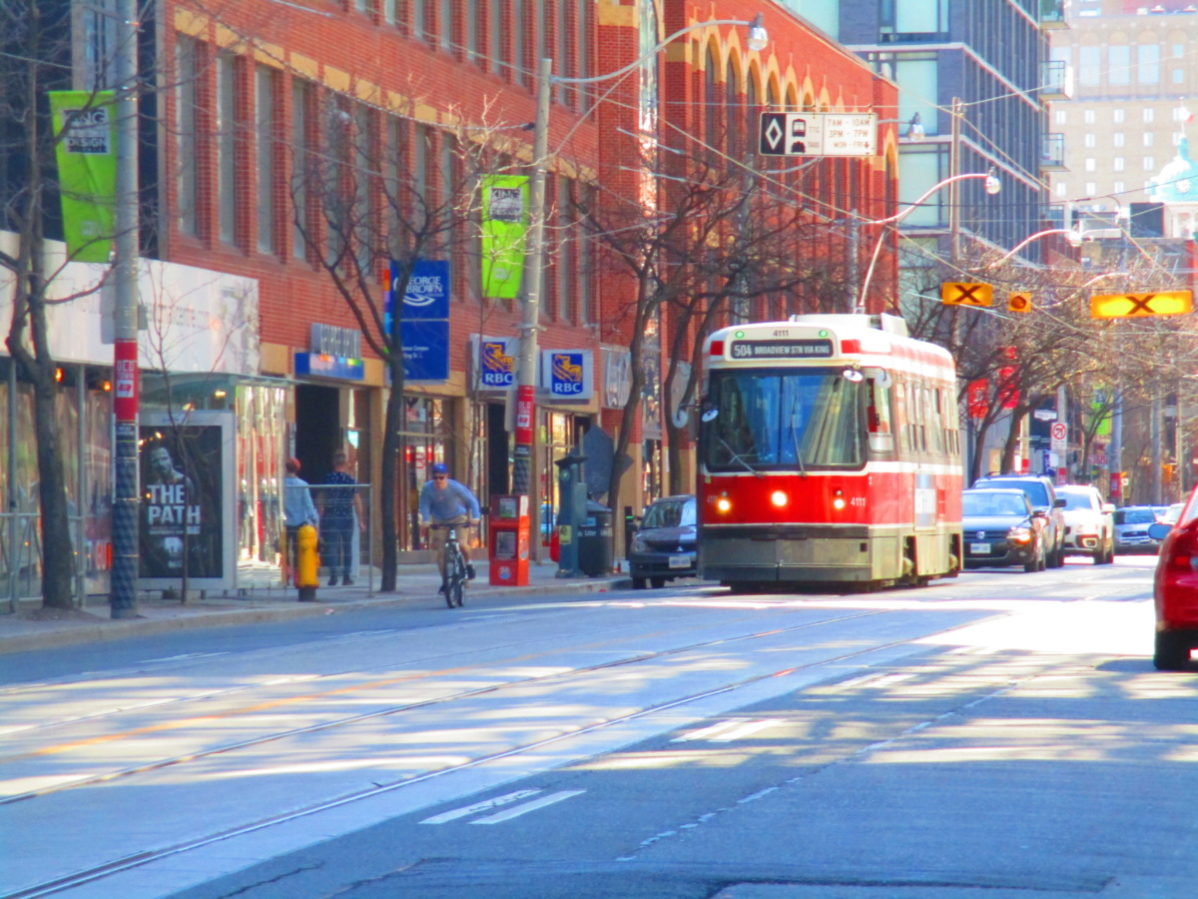TTC board hears from students about universal student transit pass and approves policy framework
Students in Toronto are one step closer to a universal student transit pass. On Dec. 11, TTC board members passed a motion accepting staff recommendations on implementing a “U-Pass.”
Representatives of U-Commute gave deputations at the meeting to propose how a U-Pass could be implemented.
U-Commute is a joint lobbying effort between the full-time undergraduate students’ unions at the University of Toronto St. George, Ryerson University, George Brown College (GBC), and OCAD University. Its goal is to get a U-Pass for students throughout downtown colleges and universities.
Tiffany White, director of education from Student Association (SA) at GBC, spoke during the meeting reaffirming the interest of implementing a U-Pass at George Brown College.
She said that the majority of 29,000 full-time students at George Brown don’t reside in the downtown core and that U-Pass will bring a lot of benefits for students.
“Many students are commuting between campuses to access their classes,” said White, who noted that GBC has three main campuses downtown and three satellite campuses in the city.
Parker Galbraith-Nolan, OCAD Student Union’s director of campaigns and advocacy highlighted Ottawa as a comparison and noted that OC Transpo has a U-Pass for students at Carleton University, University of Ottawa, Saint Paul University and Algonquin College. There students pay about $50 a month for the pass, over a 50 per cent discount on a regular monthly pass.
“I believe the U-Pass could strengthen TTC’s public relations by showing OCAD students that you care,” said Galbraith-Nolan.
During the meeting, Toronto City Councillor Joe Mihevc said that the cost for a U-pass would have to be $80 to $100 each month and an external funding source, such as provincial funding, would be needed.
Without funding, he said “this will be yet another attempt that will be stillborn” as students who walk or drive won’t vote to pay the mandatory fee at that cost.
Mihevc tweeted that the main challenge is to find a way to balance the students’ needs and the TTC’s operation.
“Of course a U-Pass is very desirable,” tweeted Mihevc. “This issue will be how to pay for it without hurting TTC operations. That will require external funding.”
Of course a UPass is very desirable. This issue will be how to pay for it without hurting TTC operations. That will require external funding https://t.co/pNyKY6vEFk
— Joe Mihevc (@joemihevc) December 12, 2017
Nour Alideeb, chairperson of the Canadian Federation of Students-Ontario (CFS-O), said the U-Pass “is the best way forward for students studying, living and commuting into the city.”
Alideeb recommended the scope be extended to include students traveling into Toronto via other transit systems such as Hamilton, Mississauga and Durham region.
“Our students are workers, they shop at our local grocery stores, they go to placement, and they are invested in eco-friendly ways of commuting,” said Alideeb. “As one of the biggest transit providers in the province, let’s lead with affordable and accessible models that work for all.”
If approved, the proposal is that U-Pass will be integrated with Presto system and paid for through mandatory student fees for all students in the colleges and universities that join in the program.
Clarification: An earlier version of this article said GBC had two education centres in addition to the three main and three satellite campuses. The education centres are academic departments in the college, not separate physical locations.


